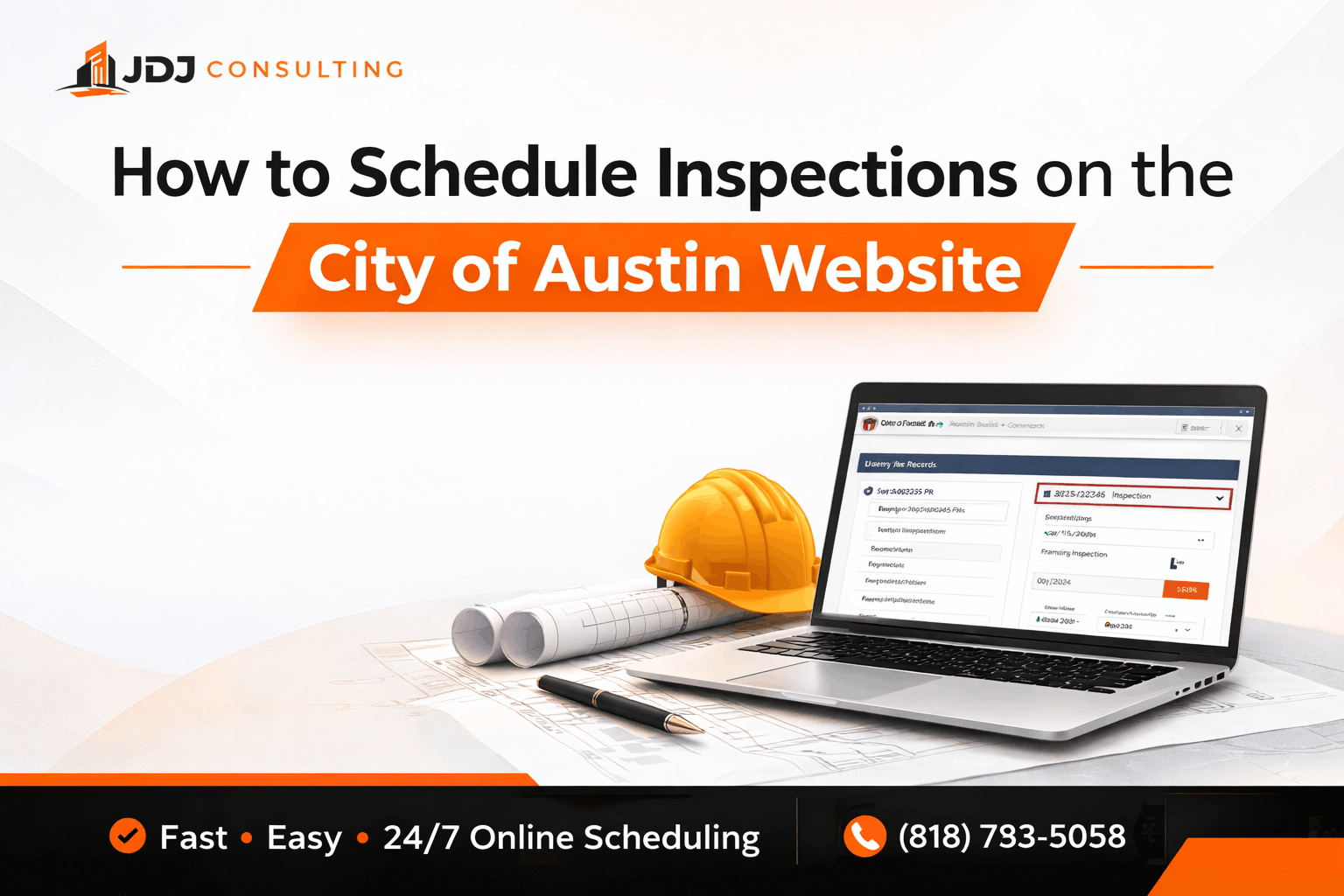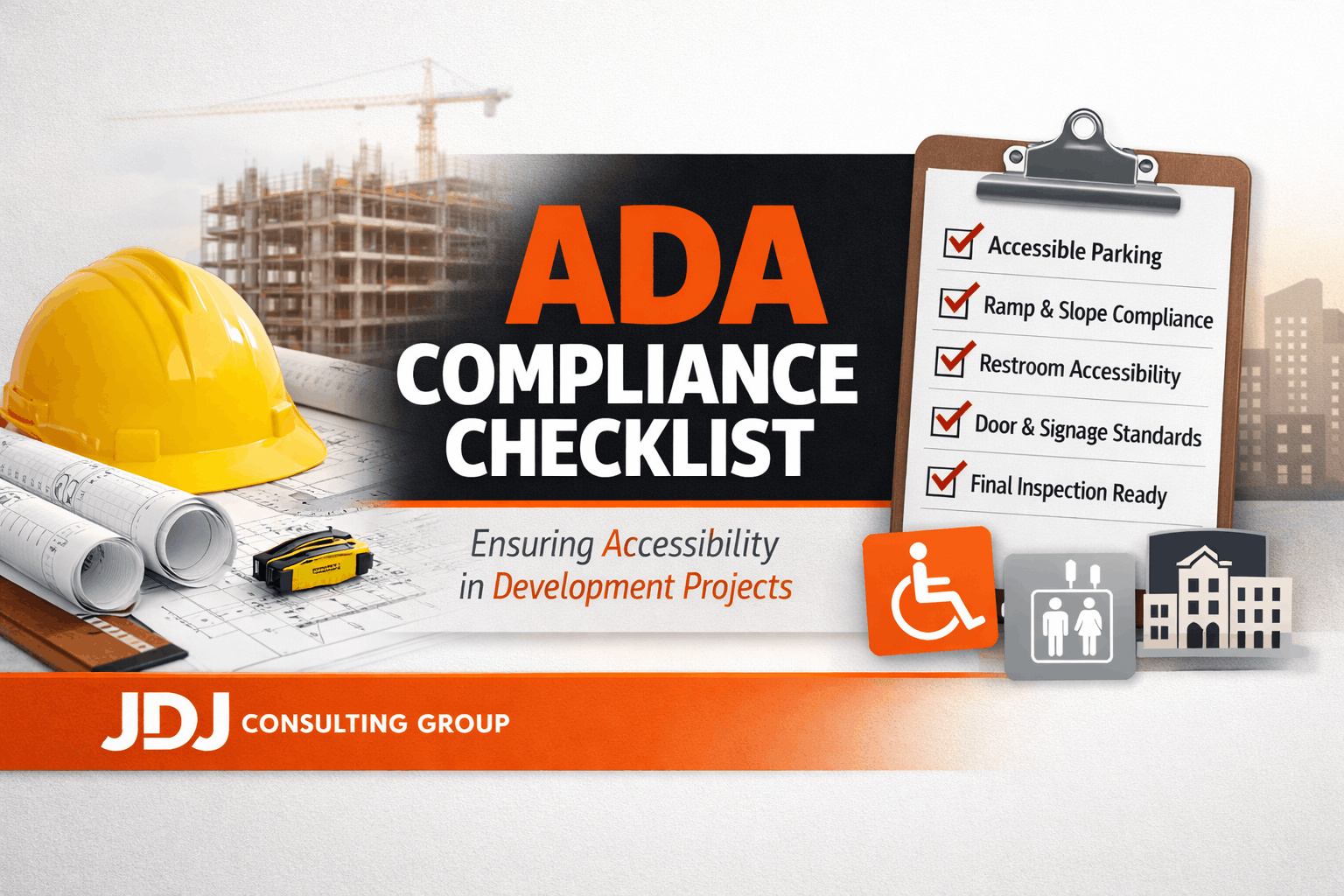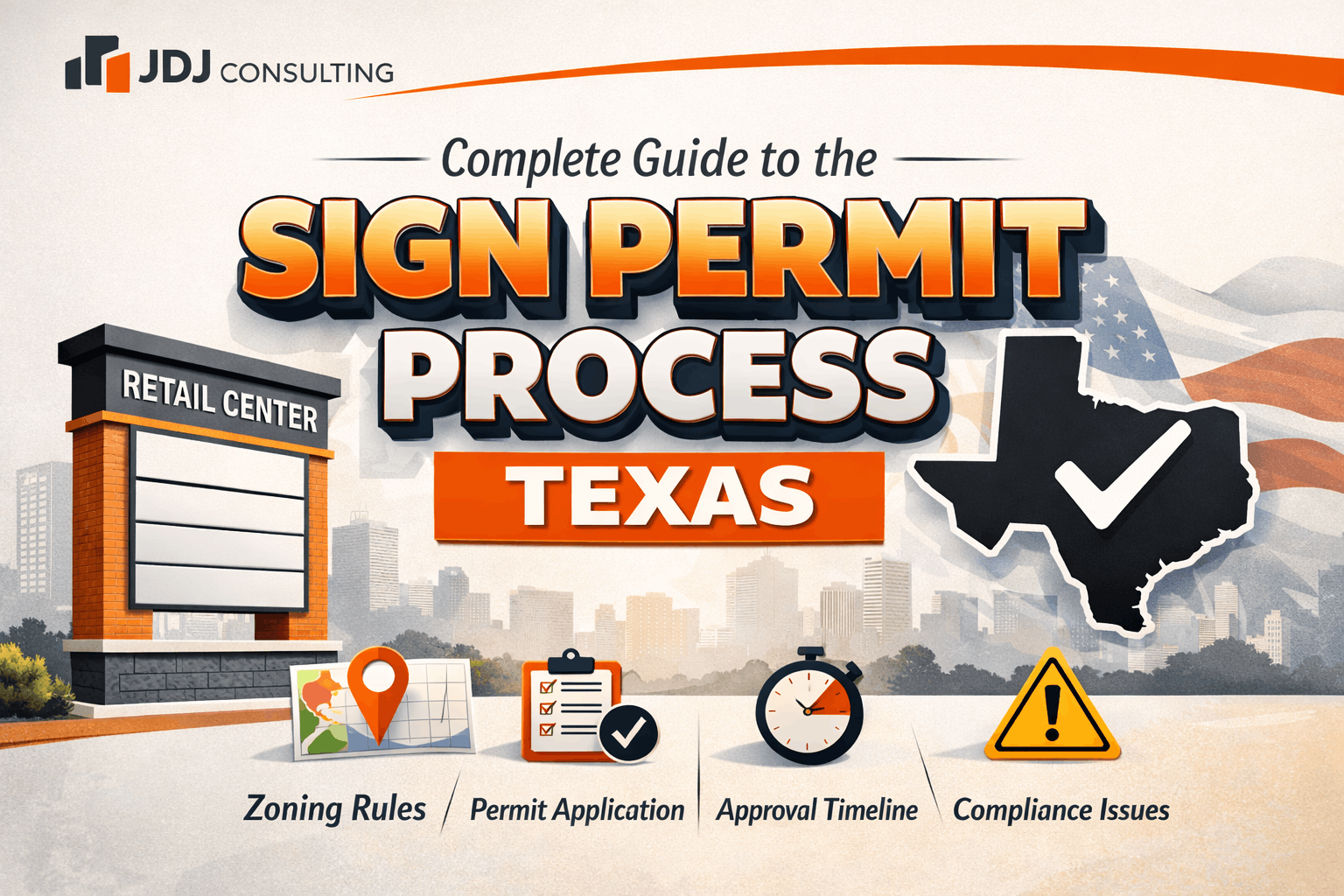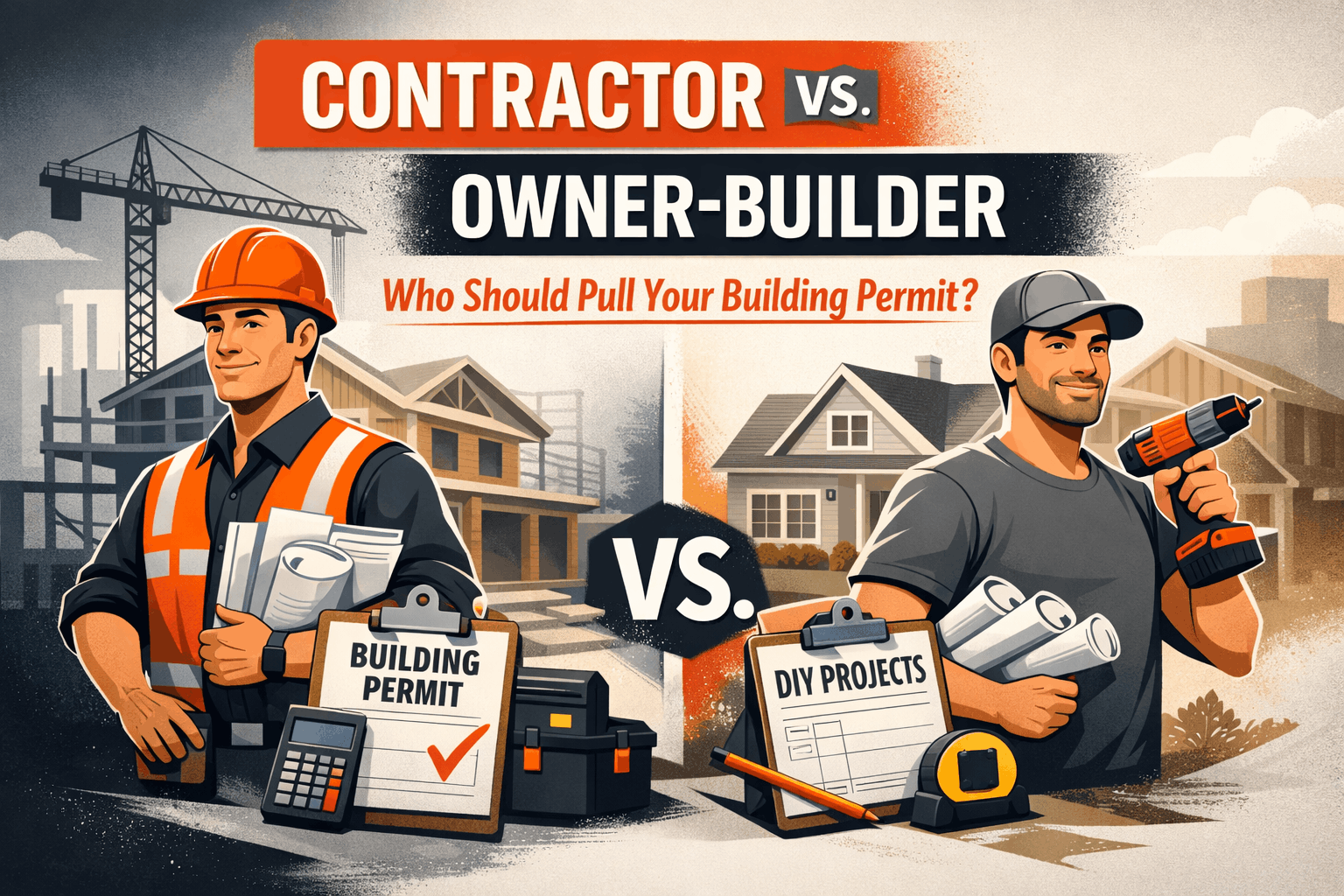Imagine this: you’ve just designed the perfect home or are ready to start a small commercial project in Los Angeles. Everything is set—plans drawn, budgets aligned, contractors lined up—but then you hit a wall: the permitting process. Forms, approvals, revisions, and endless back-and-forth emails suddenly consume weeks, even months. Sound familiar?
Table of Contents
ToggleThis is where permit expediters come in. Often misunderstood and misnamed as “permit facilitators,” these professionals can save time, reduce stress, and even save you money—if you know how to use their services wisely.
In this article, we’ll break down what permit expediters do, why they’re valuable, common pitfalls, pricing, and how to decide if you really need one for your project.
Source: Industry averages from Reddit & Los Angeles permit expediters
What Exactly Is a Permit Expediter?
A permit expediter is a professional who helps navigate the bureaucracy of getting building permits approved. Think of them as a specialized guide through a complex maze.
They don’t design your project. They don’t build it. But they:
Submit your plans to the correct agencies
Track the progress of approvals
Communicate with plan reviewers and city officials
Ensure that paperwork is complete and accurate
In some places, their role is more about facilitating submissions rather than actually “speeding things up,” which is why some call them permit facilitators.

Why Architects, Developers, and Property Owners Use Them
Even if the process seems straightforward, many professionals and property owners find permitting overwhelming. Here’s why:
Time-consuming: Even a small addition or remodel can require multiple approvals from different departments.
Complexity: Cities like Los Angeles, San Francisco, or New York have unique local zoning codes, forms, and submission rules.
Risk of errors: A missing signature, an outdated form, or incorrect filing can delay your project by weeks.
Coordination headaches: When multiple consultants are involved—structural engineers, MEP professionals, civil engineers—keeping everything aligned is tricky.
A permit expediter can reduce these burdens by acting as a single point of contact, keeping your project moving efficiently.
Real-Life Perspective: Architects on Using Expediters
Discussions on professional forums like Reddit reveal how much value architects see in permit expediters:
Time Allocation: Many architects prefer spending their hours on design or business development rather than chasing approvals.
Project Management: Expediters keep track of submissions, revisions, and city communications, preventing small mistakes from snowballing into delays.
Stress Reduction: Clients and project managers often find permitting stressful. A dedicated professional handling it can reduce anxiety significantly.
Some architects note that in large cities, using an expediter is almost a necessity, whereas in smaller jurisdictions, it may be optional but still beneficial.
💰 Permit Expediter Cost Estimator
Source: Industry averages from Reddit & Los Angeles permit expediters
When You Really Need a Permit Expediter
Not every project requires hiring a permit expediter. The decision depends on:
Project size and complexity: Large-scale renovations, multi-family developments, or commercial projects benefit most.
City or jurisdiction: Some cities have straightforward online submissions; others require multiple in-person steps and approvals.
Project timeline: Tight deadlines or phased construction schedules make professional facilitation invaluable.
Experience and availability: If you or your team aren’t familiar with permitting processes or don’t have the time to track approvals, it’s wise to hire help.
In short, if your project involves multiple departments, complex forms, or strict timelines, a permit expediter can be worth every penny.
Common Misconceptions About Permit Expediters
Many people misunderstand what permit expediters actually do. Here’s what you need to know:
They can’t magically speed up approvals. They don’t override city processes—they optimize your submissions.
They’re not design consultants. They won’t tell you how to improve your architecture; they focus on procedural compliance.
Fees vary widely. Depending on the project and jurisdiction, costs can range from $500 for a small residential project to $50,000 for a large commercial project.
The key is understanding their value: they reduce risk, prevent delays, and often save money in the long run by avoiding repeated revisions or fines.
Pricing and How Services Are Structured
Permit expediters charge in different ways:
Flat fee: Some projects are billed at a single agreed-upon rate.
Percentage of permit fees: Others charge based on the cost of permits or project value.
Cost per page or submission: Occasionally, smaller projects are charged based on the number of forms or pages submitted.
Example ranges for context:
Small residential remodel: $500 – $2,500
Custom homes or multi-unit residential: $2,500 – $10,000
Large commercial or complex projects: $10,000 – $50,000+
It’s important to get a clear scope of work upfront—what exactly is included in their services? Are they just filing paperwork, or will they also coordinate revisions and attend meetings with city officials?
🏗️ Permit Process Flowchart
-
Step 1: Prepare Plans ✏️
Collect architecture, structural, MEP, and civil plans ready for submission. -
Step 2: Submit Plans 📤
Submit digitally or in-person to the building/planning department. -
Step 3: Review & Revisions 🔍
City officials review plans; revisions may be requested for compliance. -
Step 4: Approvals ✅
Once all revisions are approved, permits are issued and construction can start.
Source: City of Los Angeles Building & Safety Department
Choosing the Right Permit Expediter
Not all permit expediters are created equal. Here’s what to look for:
Experience in your jurisdiction: Local knowledge is invaluable.
Reputation and references: Ask architects, developers, or other clients for feedback.
Communication skills: You want someone proactive, not reactive.
Full-service vs. limited service: Some only submit documents; others monitor approvals, coordinate revisions, and attend city meetings.
Remember, a good expediter saves headaches, keeps your timeline on track, and protects your investment.
Benefits Beyond Just Speed
While the name “expediter” implies speed, the real value often lies elsewhere:
Accuracy: Prevents errors in submissions that could delay projects.
Compliance: Ensures that your plans meet all current codes and regulations.
Peace of mind: Reduces stress for architects, developers, and clients alike.
Strategic insight: Experienced expediters often know how to navigate tricky situations or unusual code interpretations.
In some cases, hiring an expediter can actually save tens of thousands of dollars by avoiding delays, fines, or costly revisions.
Tips for Working With a Permit Expediter
To maximize their value, consider these tips:
Engage early: The sooner you involve them, the more they can prevent errors.
Define scope clearly: Make sure you understand exactly what services are included.
Maintain communication: Regular updates help avoid surprises.
Coordinate with your team: Keep your architects, engineers, and contractors aligned with the expediter’s workflow.
Budget realistically: High-quality expediters can save money, but their fees should be planned into your project budget.
❓ Quiz: Do You Need a Permit Expediter?
Answer these questions to find out:
- 1️⃣ Is your project complex or multi-department? (Yes/No)
- 2️⃣ Are you unfamiliar with your city’s permitting process? (Yes/No)
- 3️⃣ Do you have a tight construction timeline? (Yes/No)
- 4️⃣ Will multiple consultants be involved? (Yes/No)
Conclusion: Are Permit Expediters Worth It?
If you’ve ever felt frustrated by the permitting process, you already know the answer. Permit expediters are not a luxury—they’re a strategic investment. They help navigate bureaucracy and prevent delays. Also, they ensure compliance, and reduce stress for everyone involved.
For architects, developers, and property owners in Los Angeles and other complex cities, their value is clear:
Save time
Reduce risk
Keep projects on schedule
Improve client satisfaction
At the end of the day, the right permit expediter doesn’t just submit paperwork—they make your project flow from concept to construction.
Whether you’re handling a small remodel or a major commercial development, consider bringing one on board. Your future self—and your project timeline—will thank you.
Ready to Simplify Your Permitting Process?
At JDJ Consulting Group, we specialize in guiding architects, developers, and owners through the complex building permit process. From plan submission to approvals, we handle the details so your project stays on schedule.
Contact us today to schedule your free consultation with our experienced consultants. Let’s make your next project smoother, faster, and stress-free.
🚀 Ready to Simplify Your Permitting?
JDJ Consulting Group handles submissions, approvals, and coordination so your project stays on track.
Contact Us TodayFAQs Regarding Hiring a Permit Expediter Is the Best Investment
What exactly does a permit expediter do?
A permit expediter helps you navigate the permitting process efficiently. They submit plans to the correct city departments, track approvals, coordinate revisions, and communicate with officials. Essentially, they handle the paperwork and bureaucracy so you can focus on design, construction, or business development.
Do I really need a permit expediter for a small project?
Not always. For minor residential projects in jurisdictions with simple online submissions, you might manage on your own. But if your project is complex, has tight timelines, or involves multiple consultants, a permit expediter can save time and prevent costly mistakes.
How much does a permit expediter cost?
Fees vary widely depending on project size, complexity, and city requirements. Small residential projects may cost $500–$2,500, custom homes or larger projects $2,500–$10,000, and complex commercial projects $10,000–$50,000+. Always confirm the scope of services upfront.
Can a permit expediter speed up the approval process?
They can help streamline the process, but they cannot override city rules. Their value lies in submitting accurate documents, reducing revisions, and proactively navigating bureaucracy. In some cases, this may shorten approval times, but it’s more about efficiency than magically skipping steps.
Who hires a permit expediter—architects, developers, or clients?
It depends. Architects and contractors often hire expediters directly, especially on complex projects. Sometimes, property owners hire them to ensure approvals stay on track. The key is having a single point of contact managing submissions and follow-ups.
What’s the difference between a permit expediter and a permit facilitator?
The terms are often used interchangeably, but some professionals prefer “facilitator” to avoid implying they can speed up city approvals. Both help with submissions, paperwork, and coordination—but “facilitator” emphasizes guidance and compliance rather than fast-tracking.
Can a permit expediter handle revisions and resubmissions?
Yes. A good expediter monitors plan reviews, identifies required changes, and ensures revisions are submitted correctly and on time. This reduces delays caused by missing documents or improper resubmissions.
Are permit expediters only useful in big cities?
They’re most critical in cities with complex codes, multiple departments, and strict timelines—like Los Angeles, New York, or San Francisco. Smaller jurisdictions with simpler online submissions may not require their services, but they can still save time and reduce errors.
How do I choose the right permit expediter?
Look for experience in your jurisdiction, a strong reputation, clear communication, and a defined scope of work. Ask for references, and make sure they understand your project type. A knowledgeable expediter will save headaches and keep your project on track.
Can hiring a permit expediter save money?
Absolutely. While there’s an upfront fee, expediters often prevent costly delays, repeated revisions, or fines. For larger or complex projects, avoiding even a single delay can save thousands, making their service a smart investment.






